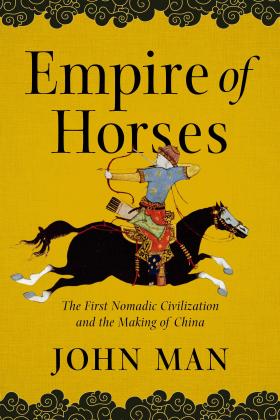
| Format | Hardcover |
| Publication Date | 02/04/20 |
| ISBN | 9781643133270 |
| Trim Size / Pages | 6 x 9 in / 336 |
An authoritative and rich history of the remarkable Xiongnu culture—a lost empire which preceded the Mongols and even China itself.
The author of landmark histories such as Genghis Khan, Attila, and Xanadu invites us to discover a fertile period in Asian history that prefigured so much of the world that followed.
The people of the first nomadic empire left no written records, but from 200 bc they dominated the heart of Asia for four centuries, and changed the world in the process. The Mongols, today’s descendants of Genghis Khan, see these people as ancestors. Their rise cemented Chinese identity and inspired the first Great Wall. Their descendants helped destroy the Roman Empire under the leadership of Attila the Hun.
We don’t know what language they spoke, but they became known as Xiongnu, or Hunnu, a term passed down the centuries and surviving today as “Hun,” and Man uncovers new evidence that will transform our understanding of the profound mark they left on half the globe, from Europe to Central Asia and deep into China.
Based on meticulous research and new archaeological evidence, Empire of Horses traces this civilization’s epic story and shows how this nomadic cultures of the steppes gave birth to an empire with the wealth and power to threaten the order of the ancient world.
John Man is a historian specializing in Asia and the nature of leadership. John's books have been published in over twenty languages around the world and include bestselling biographies of Genghis Khan, Kublai Khan, and Attila the Hun, as well as histories of the Great Wall of China and the Mongolian Empire. He lives in England.
Buy it now in print: Amazon Barnes & Noble IndieBound
Buy it now in ebook: Amazon Barnes & Noble Apple Kobo
"Historian and travel writer Man delves into the rich historical foundations undergirding the myth of the Amazons. Engaging." Publishers Weekly (Praise for John Man)
"One could ask for no better storyteller or analyst than John Man." Simon Sebag Montefiore, New York Times bestselling author